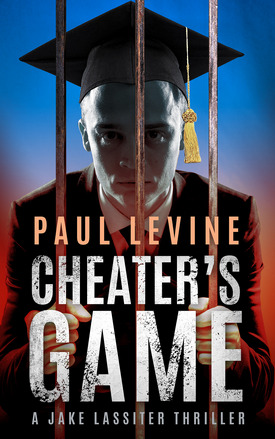I posted about the eighth Marty Singer novel, Chasing the Pain earlier this morning, and now I have a Q&A with the author, Matthew Iden to share with you. I had a harder time than I’m used to coming up with spoiler-free questions for this book, but think I pulled it off. I enjoyed this, hope you do, too.
Help us get to know you a bit—could you sketch out your path to publication and where the Marty Singer series came from?
After several frustrating years scaling the walls of traditional publishing only to be pushed off the parapet, I turned to self-publishing when it was still just a gleam in Jeff Bezos’s eye, about 2010 or so. I was lucky enough to have some immediate success with sales, but more importantly I realized what the important stuff was: connecting with readers, getting feedback, telling my story. It was empowering to see people who were not my mother actually appreciate my writing—this is the core piece of advice I give writers on the fence about self-publishing: as corny as it sounds, reaching readers is its own reward.
After three or four years, I’d done well enough to catch the eye of Thomas & Mercer—Amazon Publishing’s mystery and thriller imprint. They picked up all of my Marty Singer books (six at the time) and contracted for two standalone thrillers, which became THE WINTER OVER and BIRTHDAY GIRL.
The blush eventually came off the romance, but we parted amicably. I regained the rights to my Marty Singer series and self-published them, then added two more to the pile (THE BITTER FIELDS and CHASING THE PAIN).
The idea for Marty as a character came from my desire to write about a “real” individual. I love the Jack Reachers of the literary world, but I have a very hard time writing about them. I identify much more with Henning Mankell’s Kurt Wallander: solid, unvarnished, relatable.
I imagine that bringing back a character from a previous novel (at least one not designed to be a recurring character) is a tricky proposition—what came first, the desire to write more about Karl and this storyline lent itself to that, or the idea to do something with the “rehab industry” and he was a convenient way into that?
I really wanted to return to Karl. I make a few passing comparisons to him in CHASING THE PAIN as a King Pellinore-type figure: an aging, knight-errant who can’t seem to catch up with his own reason for being. Presenting him as someone with a substance abuse problem helped me solidify that framework; showing him dealing with his vices and corresponding fallout gave his story more substance.
I like to ask about supporting characters, and have at least a dozen things I’d enjoy asking about Madame Cormier (starting with: when can we expect a spin-off?), but something tells me that we can’t do that without ruining something for the readers. So, let’s go with Don D’Amelio instead. Where did he come from? He has certain, shall we say, sanguinary impulse that a lot of writers wouldn’t have given him—was that a little fun to write?
Watching Don come to life was a hoot. He started out fictional life as a sad-sack wasting his golden years sipping espresso and reading the sports page. Originally, his only function was to give Marty some more info about the rehab industry—what we call a “spear carrier” in the writing biz. But when I realized I needed a side-kick for my side-kick, I just went all-in and couldn’t stop laughing at how, uh, sanguinary I could make him.
Regarding Madame: you’re like the fourth person who’s wanted more. I think I might take the hint! I had a great time watching him come to life.
You’ve written in a handful of genres—are there any you wouldn’t want to try? What is it about Crime Fiction that brings you back to it?
I don’t have an interest in writing romance. Not because it isn’t a “real” genre, because the romance writers I know are some of the sharpest, hardest-working writers in the business, but just from a simple interest perspective: the stories don’t click with me and I can’t write what I don’t read.
Actually, my first love is fantasy, then science fiction, then crime fiction, but the world-building required of F/SF can be quite intimidating; my first attempts were dismal. Now that I have some writing experience under my belt, I have plans to go back and try my hand at a trilogy or three, but I’ve also come to love what I can do with crime fiction and won’t be abandoning it.
Let’s play “Online Bookstore Algorithm” (a game I’ve recently invented). What are 3-5 books whose readers may like Chasing the Pain?
I’d be lying if I said I wouldn’t want CHASING THE PAIN sitting next to Elmore Leonard’s GOLD COAST on someone’s bookshelf. CTP is not as caper-ish as Gold Coast, but I think there’s a similar flavor and not just in the setting.
Robert B. Parker’s Spenser is really the ur-private investigator so many of us try to emulate, not just for the tough guy persona, but the humor. LOOKING FOR RACHEL WALLACE would probably please the same kind of reader.
And, as long as I’m getting too big for my writing britches, I might as well throw in James Lee Burke’s BLACK CHERRY BLUES and James Crumley’s THE LAST GOOD KISS.
What’s next for Matthew Iden?
I’m about two-thirds done with a standalone spy novel (working title: SCIMITAR) set in modern-day Paris that occurred to me during a vacation there. I’ve struggled with it for almost two years now while I’ve written other things, but it’s time to get this one done. I’m pretty excited to see how it wraps up…because then I’ll feel free to write Marty #9 or Madame #1.
Thanks to Matthew Iden for his time and these answers!






